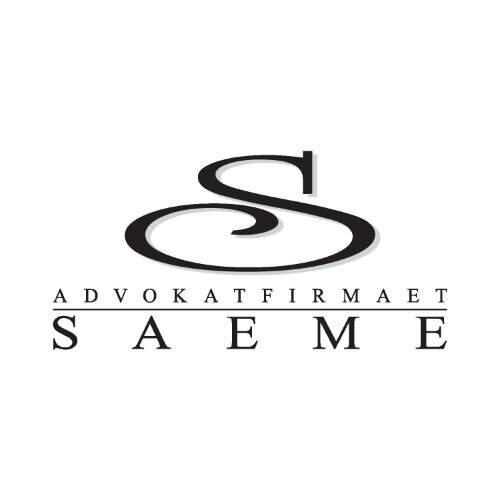Best ADR Mediation & Arbitration Lawyers in Oslo
Share your needs with us, get contacted by law firms.
Free. Takes 2 min.
List of the best lawyers in Oslo, Norway
About ADR Mediation & Arbitration Law in Oslo, Norway
Alternative Dispute Resolution (ADR) encompasses various methods of resolving conflicts without resorting to litigation. In Oslo, Norway, ADR primarily involves Mediation and Arbitration. Mediation is a facilitated negotiation process wherein a neutral mediator helps parties reach a voluntary agreement. Arbitration, meanwhile, is more formal: a neutral arbitrator hears evidence and then makes a binding decision. These methods are quicker, often more cost-effective, and offer confidentiality compared to traditional court proceedings.
Why You May Need a Lawyer
Seeking legal advice in ADR Mediation & Arbitration can be crucial in several situations. For example, when entering into a mediation or arbitration agreement, understanding the clauses and potential implications is essential. Additionally, legal representation can help prepare and present your case effectively during arbitration, negotiate settlement terms in mediation, and ensure compliance with final resolutions. A lawyer well-versed in ADR methods can also provide strategic advice to achieve favorable outcomes.
Local Laws Overview
Oslo, Norway, adheres to a structured framework for ADR methods governed by both national legislation and international conventions. Key aspects include:
- The Arbitration Act of 2004: Provides the legal structure for conducting arbitration, including the appointment of arbitrators, the arbitration procedure, and the enforceability of awards.
- The Mediation Act: Outlines the principles of mediation, the role of mediators, and the confidentiality of the process.
- International Conventions: Norway is a signatory to various international agreements like the New York Convention, which facilitates the recognition and enforcement of foreign arbitral awards.
Frequently Asked Questions
What is the difference between mediation and arbitration?
Mediation is a voluntary and confidential process where a neutral mediator assists the parties in reaching a mutually agreeable settlement, while arbitration involves a neutral arbitrator making a binding decision on the dispute after reviewing evidence and arguments.
Is arbitration legally binding in Oslo, Norway?
Yes, arbitration awards in Oslo, Norway, are legally binding and can be enforced in the same manner as court judgments.
Can I appeal an arbitration decision?
Generally, arbitration decisions are final and binding. Appeals are limited and usually only possible on grounds of procedural errors or if the award violates public policy.
How is a mediator selected?
A mediator is typically selected by mutual agreement of the parties involved in the dispute. Alternatively, a mediation institution can appoint one.
What types of disputes can be resolved through ADR in Oslo?
ADR can resolve various disputes, including commercial, contractual, employment, and family disputes. The method chosen depends on the nature and specifics of the conflict.
How long does the ADR process take?
The duration of the ADR process varies. Mediation can be relatively quick, often taking a few sessions, while arbitration may take several months, depending on the case's complexity.
Are ADR processes confidential?
Yes, both mediation and arbitration processes in Oslo generally ensure confidentiality, protecting the privacy of the parties and the details of the dispute.
What costs are involved in ADR?
The costs for ADR can vary significantly. Mediation is usually less expensive than arbitration, which can involve fees for the arbitrator's services, legal representation, and administrative costs if institutional arbitration is used.
How do I enforce an arbitration award?
In Norway, arbitration awards can be enforced by applying to the local courts, which generally uphold and enforce the awards in line with relevant legal conventions and national laws.
Do I need a lawyer for ADR?
While not always necessary, having a lawyer can significantly benefit, especially in arbitration, where legal representation ensures your rights and interests are effectively presented and protected.
Additional Resources
For further guidance and information on ADR Mediation & Arbitration in Oslo, you may find the following resources helpful:
- Norwegian Bar Association: Provides information on finding qualified lawyers.
- Norwegian Arbitration Association: Offers resources and details about arbitration processes in Norway.
- The Ministry of Justice and Public Security: Provides regulatory information and access to relevant legal texts.
- European Mediation Network Initiative: Offers cross-border mediation support and resources.
Next Steps
If you need legal assistance in ADR Mediation & Arbitration in Oslo, follow these steps:
- Consult with an ADR-specialized lawyer to understand your options and the best course of action.
- Gather all relevant documents and information about your dispute.
- Choose the appropriate ADR method based on the nature of your conflict and seek a mutual agreement with the other party to engage in ADR.
- Select a qualified mediator or arbitrator, either by mutual agreement or through an ADR institution.
- Proceed with the mediation or arbitration process under the guidance of your legal advisor and aim for a resolution that best protects your interests.
Lawzana helps you find the best lawyers and law firms in Oslo through a curated and pre-screened list of qualified legal professionals. Our platform offers rankings and detailed profiles of attorneys and law firms, allowing you to compare based on practice areas, including ADR Mediation & Arbitration , experience, and client feedback.
Each profile includes a description of the firm's areas of practice, client reviews, team members and partners, year of establishment, spoken languages, office locations, contact information, social media presence, and any published articles or resources. Most firms on our platform speak English and are experienced in both local and international legal matters.
Get a quote from top-rated law firms in Oslo, Norway — quickly, securely, and without unnecessary hassle.
Disclaimer:
The information provided on this page is for general informational purposes only and does not constitute legal advice. While we strive to ensure the accuracy and relevance of the content, legal information may change over time, and interpretations of the law can vary. You should always consult with a qualified legal professional for advice specific to your situation.
We disclaim all liability for actions taken or not taken based on the content of this page. If you believe any information is incorrect or outdated, please contact us, and we will review and update it where appropriate.
















